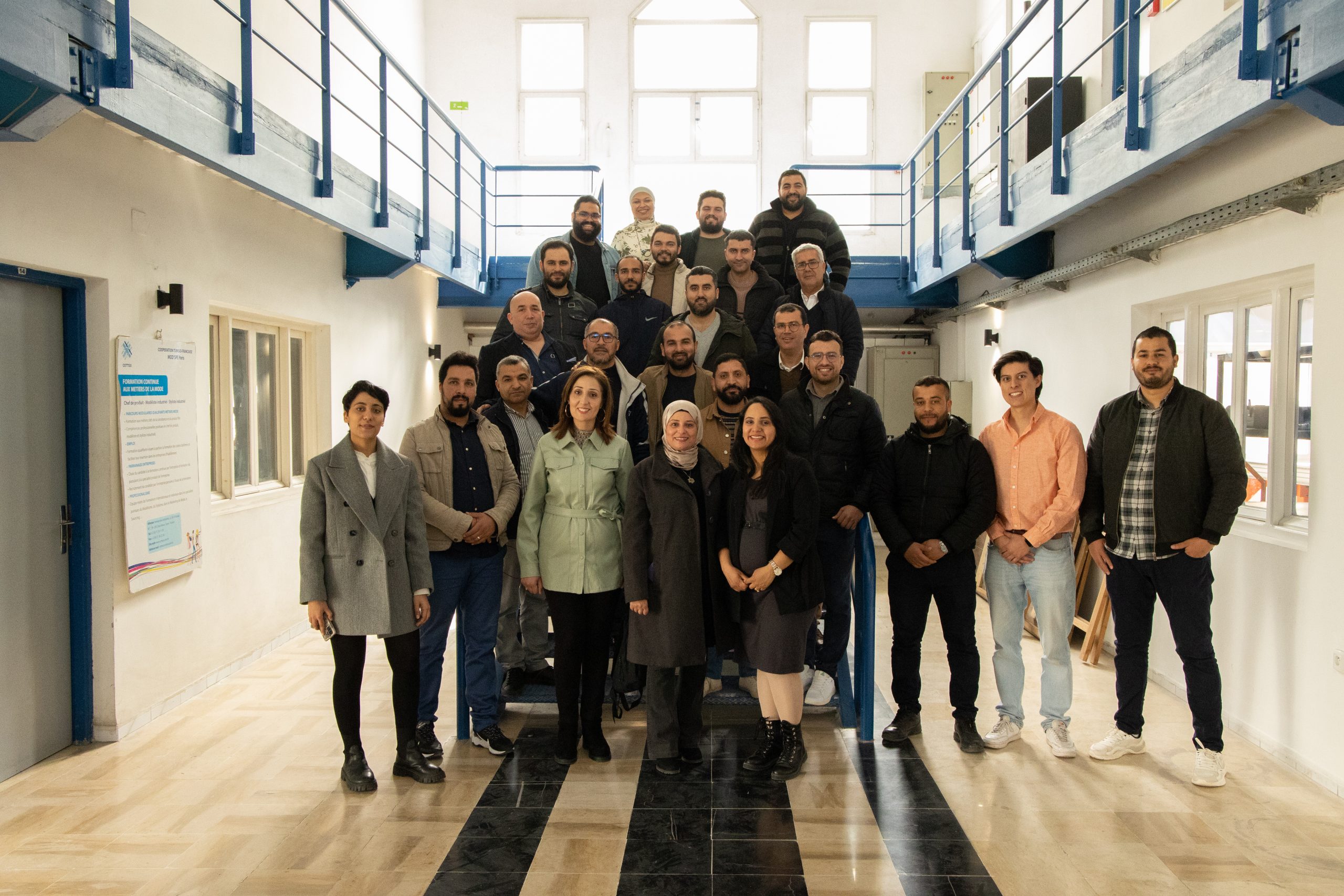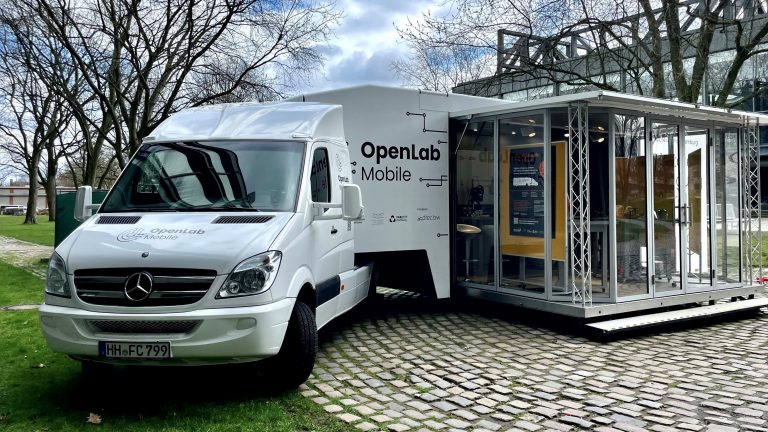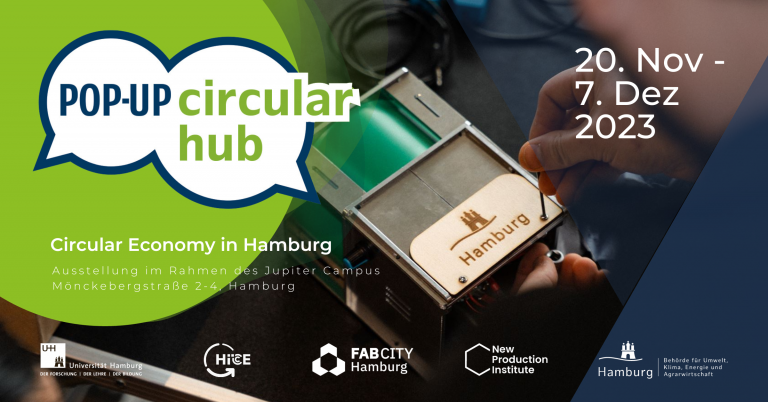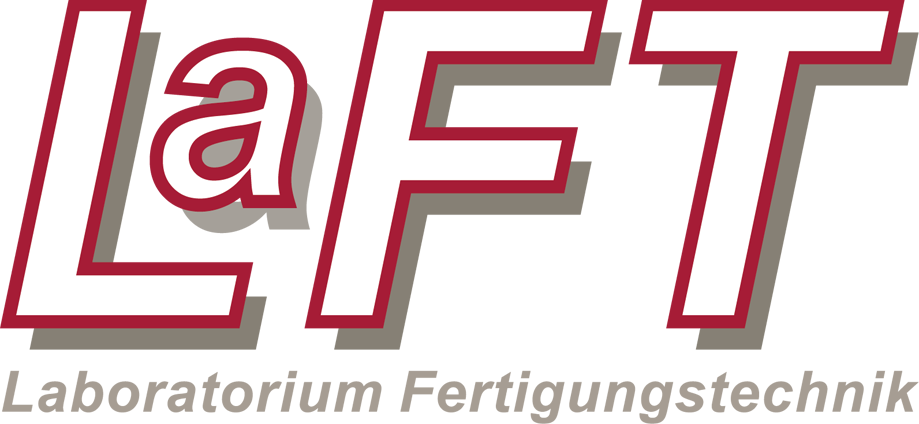On Friday, March 8, the New Production Institute (NPI) from the Helmut Schmidt University launched the new OpenLab Tunis with a soft opening at CETTEX, the Technical Center for the textile industry, in collaboration with GIZ Tunisia, to invite Tunisian Technical Center members to utilize the innovative space for problem-solving in their respective fields.
Throughout March 4th to 8th, 2024 the NPI organized a Hackathon where teams from various Technical Centers focused on devising, developing, and executing solutions tailored to industry-specific challenges. The culminating day saw teams showcasing the outcomes of the week-long hackathon to a diverse audience of engineers across industries, alongside representatives from GIZ Tunisia, the Helmut Schmidt University, as well as General Directors from the Technical Centers.
The technical advisory team of the hackathon was led by project manager Dr. Juan Manuel Grados Luyando (NPI) and supported by our partner InMachines Ingrassia GmbH in collaboration with the local open source hardware specialist Fab619. Dr. Juan M. Grados Luyando said: “I’m incredibly proud and excited to announce the successful launch of the OpenLab Tunis and the culmination of our week-long Hackathon ‘Innovating Together’. We’ve accomplished the development of some truly innovative solutions, thanks to the dedication and hard work of all participating teams from the 8 Technical Centers representing the different industries in Tunisia. It’s been a fantastic collaborative effort together with GIZ Tunisia, and the Ministry of Industry, Energy and Mines. I couldn’t be happier with the outcomes. This is the beginning of a new innovation journey with the help of Digital Manufacturing and open source Machines.”
Ons Obba, the local Digital Transformation Expert at GIZ Tunisia, stated: “We are proud of the collaboration and commitment that everyone has demonstrated, A lot of work has been done to implement the Open Lab in Tunisia that will serve as an open manufacturing space based at CETTEX (Textile Technical Center) fostering collaboration and autonomy, and giving easy access to robust, easy-to-handle production resources, for the benefit of technical centers and manufacturers in a wide range of sectors.”
7 teams – 5 days – 11 prototypes
Below, a detailed overview of the prototypes brought to life by seven teams, each composed of members from the Tunisian technical centers. These prototypes represent the culmination of collaborative efforts and innovative ideas, showcasing the diverse talents and expertise within the participating teams.
1. Heating Blanket
The CETTEX team undertook the development of four distinct projects. Among them, the first project involved creating a heated blanket utilizing surplus industrial fabric, featuring integrated active heating regulated by a temperature sensor.
Team members of the four CETTEX projects are: Imene SLAMA, Halima GARBOUT, Karim BELLOUMI, Bochra ATIG, Rabeh SMIAI, Taieb LABIDI, Sami OMRI.



2. Luminous Jacket
CETTEX’s team innovatively designed a jacket featuring built-in LED lights powered by batteries, catering to the needs of workers. These LED strips were strategically positioned on each side, offering versatile lighting options including a continuous illumination or a blinking mode.



3. Automatic Sewing Machine
For their third project, CETTEX’s team devised and integrated various components aimed at automating the functions of a typical industrial sewing machine. This involved utilizing Arduino boards to manage solenoids and sensors, alongside employing 3D printing to fabricate guides for the fabrics and custom mounting systems for the new integrated components.



4. Smart Clothing
The fourth project undertaken by team CETTEX involved integrating IoT sensors for monitoring temperature and heart rate into clothing. This challenge required the implementation of real-time streaming of sensor data via WebSockets to a smartphone for effective data tracking.



5. Tool set for woodworking
CETIBA’s team has designed and produced a suite of tools utilizing different techniques such as 3D printing and CNC milling. These tools are specifically tailored to support carpenters in the creation of diverse furniture pieces, enhancing their efficiency and precision in the woodworking process.
Team members: Boujelbene BASSEM, Ouerghi KARIM, Salem Mohamed AYMEN.



6. Mounting Jig
CETIME’s team dedicated effort resulted in the creation of a mounting solution designed specifically for attaching stylus tips for CMM systems. Leveraging 3D printing capabilities, they fabricated custom mounting components, alongside employing laser cutting methods to create precise mounting templates catering to a range of stylus tip variations.
Team members: Mellouli MAJDI, Turki HASSENE, Ben Achour MOHAMED TAHER.




7. Shoe Lasts
The CNCC team has crafted digital models of shoe lasts and streamlined their production using 3D printers improving speed and efficiency with respect to traditional methods. To achieve this, they acquired proficiency in utilizing Grasshopper, a powerful plug-in for Rhinoceros 3D, enabling the creation and automation of intricate parametric designs.
Team members: Imen BEN KHOUD, Mohamed ROUINI.



8. Butter mould
The team of CTAA and CTC collaborated in the designing and 3D printing of a mould for manual packaging of butter.
Team members
CTAA: Rania BANI, Mokhtar ELFAKRAOUI.
CTC: Majdi CHAKROUN.


9. Replacement pieces
The team of CTAA and CTC also collaborated for the 3D scanning and 3D printing of replacement pieces for mechanical components. As an exercise they manufactured a replacement gear.

10. Moulds for standard ice testing balls
The CTMCCV team engineered molds specifically tailored for standard ice testing balls, employing 3D printing technology for their production. These molds are utilized to create standardized ice balls essential for conducting impact tests on solar panels.
Team members: Sami BOUFARES, Yacine KHEMIRI, Mohamed BEN REGUAYA, Tarek ESSID, Naoufel BEN NASR, Hamza ELLOUZI.



11. Bottle prototypes
Finally, the PACKTEC team utilized 3D printers to design and produce visual prototypes showcasing various bottle designs.
Team members: Ahmed HAMMOUDA, Mohamed ZOUARI, Mohamed Khalil LAKHDAR.



We would like to thank the team members for their participation in the hackathon and their effort in making this event such a great success!
The New Production Institute of the Helmut Schmidt University / Bundeswehr University has set up the OpenLab Tunis as an open laboratory for digital manufacturing to promote the innovation strategy of local value creation with digital manufacturing tools on the way to Industry 4.0 in Tunisia.
This activity is part of the National Initiative “Towards an Industry 4.0 in Tunisia”, launched by the Ministry of Industry, Mines and Energy, supported by the Special Initiative “Decent Work for a Just Transition- Invest for Jobs of the German Federal Ministry for Economic Cooperation and Development (BMZ) and implemented by the GIZ Tunisia Digital Transformation Program in partnership with Helmut Schmidt University (HSU).
Read more about the project via: https://newproductioninstitute.de/digital4jobs



















